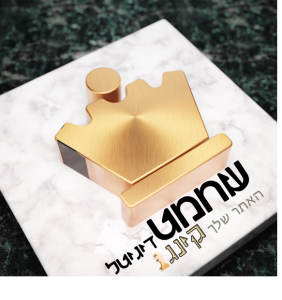Vayera – Education
“For I know him, that he will command his children and his household after him, and they shall keep the way of Hashem, to do justice and judgment; that Hashem may bring upon Abraham that which he hath spoken of him.” (Bereshis 16-19)
Avrohom was chosen by Hashem as a result of his dedication to commanding his children and his household to follow in His Ways .Given Avrohom’s reputation as an educator par excellence, it is remarkable that there is hardly any recorded conversation with his son and spiritual successor, Yitzchok. The only recorded talk between them is on the way to the Akeidah. While recording this event the Torah mentions a mere eight seemingly trivial words (22:7-8) which Avrohom spoke to Yitzchok, and those words were only spoken in response to a discussion initiated by Yitzchok. If we are to learn from Avrohom’s techniques in giving over our values and priorities to the next generation, should we not be given more examples? The Torah teaches us a tremendous lesson regarding the education of our children by intentionally limiting the recorded words of Avrohom to his son. Many parents believe that raising children is as simple as constantly instructing and commanding them what they should or should not do. The fact that the parents themselves may not follow this advice is believed to be irrelevant, as “Do as I say, not as I do” seems to resolve the apparent contradiction. In reality, of course, nothing could be further from the truth. Our children are much more astute than we realize, and they see right through our double standards, recognizing that our actions reflect our true beliefs, which they in turn absorb. The Torah tells us very few of Avrohom’s words to Yitzchok to teach us that this was not Avrohom’s primary form of conveying his beliefs. Rather, the most effective form of education came through serving as a personal example of all that he valued and wished to transmit to his son. This form of instruction was stronger than any words and could not be explicitly expressed by the Torah. We learn a similar message about effective educational method from an insight on the verse:”Yukach Na Miat Mayim ViRachatzu Raglaychem” ‘Let a small amount of water be brought and wash your feet”. Why was Avraham tight with the water? [When it came to serving the guests he seemed to give them an enormous amount of food (a complete tongue for each guest).] Why only a little bit of water to wash their feet? The commentators answer that the pasuk says, “Yukach Na” – “Let it be taken” – which Rashi explains to mean – “Al Yidei Shliach” – by means of a messenger. Since it was another person who would be carrying the water; Avraham was sensitive not to make him carry such a heavy load and therefore only offered the guests “a little bit of water”. But why did Avraham not do the mitzvah himself? Why did he send a messenger to perform his Mitzvah? Who was the messenger he sent to perform the Mitzvah of Hachnasat Orchim? It was his son Ishmael whom he wished to educate in the performance of the Mitzvah of Hachnasas Orchim and Abraham therefore asked him to bring water for the visitors. Yet it would seem from the Midrash that Abraham should have performed the mitzvah himself: ” Rabbi Yehuda says in the name of Rav (Bava M’tzi’a): What Avraham did for his guests by himself, G-d did for the People of Israel by Himself; what Avraham did via another, G-d did likewise. Avraham said: YUKACH NA M’AT MAYIM. [Rashi explains the strange grammatical form by saying that Avraham did not provide the water to the strangers himself (it does not say K’CHU…)]So too, when G-d was to provide water to Avraham’s descendants, He commanded Moshe Rabeinu to throw the stick into the water, to strike the rock, to speak to the rock. But Avraham fed the angels himself – “and I will get the bread, etc.” When G-d needed to feed the People, He provided us with Manna. Moshe did not bring it about. G-d gave it straight to the People.” Why should Abraham have brought the water by himself? He could have done so but he wished to educate Yishmael in the performance of mitzvoth. How could he educate Yishmael if not by telling him to perform the mitzvah?! The answer is that the best way of educating is by setting an example by doing the mitzvah yourself and not by telling others to do it. Educate by doing not by saying. The Talmud [Shabbos 31a] relates several questions that are asked of us when we go before the Heavenly Court after 120 years. We are asked if we were honest in our business dealings, if we set aside fixed times for learning Torah, if we occupied ourselves with having children, if we looked forward expectantly for salvation, etc. The Zohar adds an additional question to the list. The Zohar adds that after 120 years the Heavenly Court will ask “Did you provide the proper education for your children?” The Zohar says that if a person can answer that question affirmatively, G-d closes the case and refuses to hear any other complaints about the individual. One who can answer this question positively has in fact led an exemplary life and his way of life has been emulated by his children he therefore is assured of success in the Heavenly Court.

 שחמט דיגיטל
שחמט דיגיטל